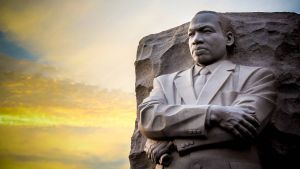Women have led and been a part of some of the greatest scientific discoveries of all time. But they are also far underrepresented in science and tech fields and often left out of scientific conversation.
500 Women Scientists, a US-based nonprofit that is dedicated to promoting equality and gender inclusivity in science, is stepping up to help female scientists get noticed. Their diverse leadership started small but hopes to continue its mission.
500 Women Scientists created “Request a Woman Scientist”, a database that 10,000 female scientists have joined. The database lists the names, contact information, and research conducted by various women in STEM-related fields to connect them with journalists, universities, legislators and scientific conferences.
“Request a Woman Scientist” has been rapidly growing and is filling the public sphere with women’s research and theories.
The database was created in January 2018. In just 11 months after it was first created, the database had women scientists from 174 different scientific disciplines in 133 countries, according to a study published in PLoS Biology.
Within just one year of the project’s launch, 1,278 database participants were contacted for quotes and keynote speaker invitations.
Men are overrepresented in science. A 2015 study of international gender bias showed that most nations, even the progressive Netherlands, believe that science is “a profession for men”. Research also shows that men are invited to be keynote speakers twice as much as women and in news articles and scientific reports, men are quoted three times as much as women.
But that is changing quickly. In February 2019 neuroscientists descended on Vancouver, Canada for the Third International Brain Stimulation Conference. The first two conferences were plagued with complaints that barely any of the keynote speakers were women. But in 2019, female neuroscientists delivered six out of 20 of the conference’s featured talks.
With the “Request a Woman Scientist” database, hopefully, conferences and news articles will continue to feature more brilliant and hard-working women.
“We need men to know about the platform so they can use it but, even more than that, we need men to realize that equity and representation not only matters but should be as important as other considerations when organizing a research team or a speaker panel. This experience has reminded us that we need to rethink science, and to be an inclusive organization for women from all sorts of backgrounds,” University of Colorado–Anschutz neuroscientist Elizabeth McCullagh told Nature.


















